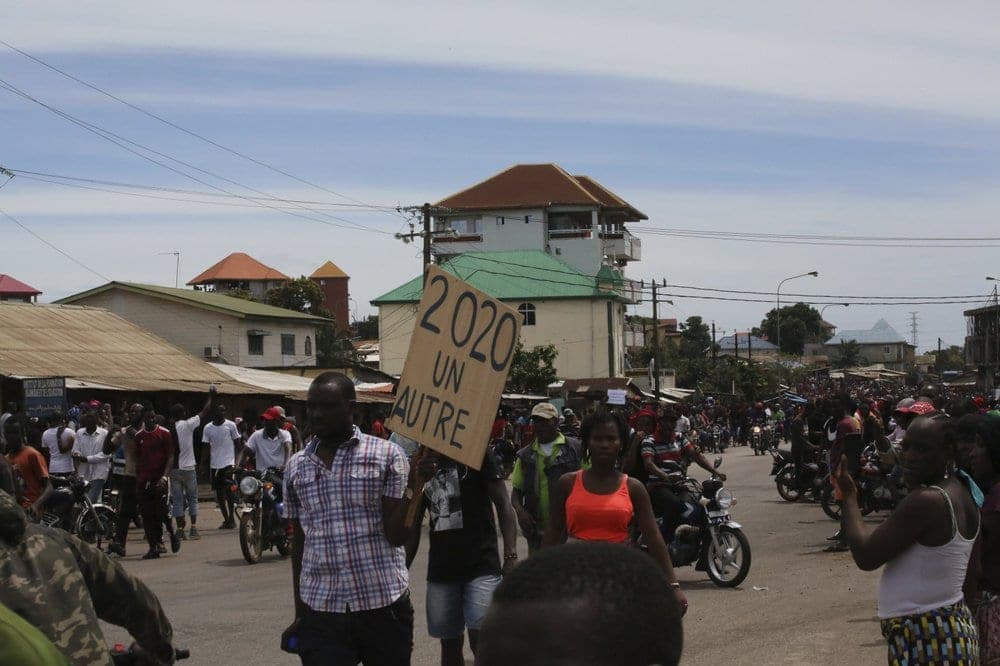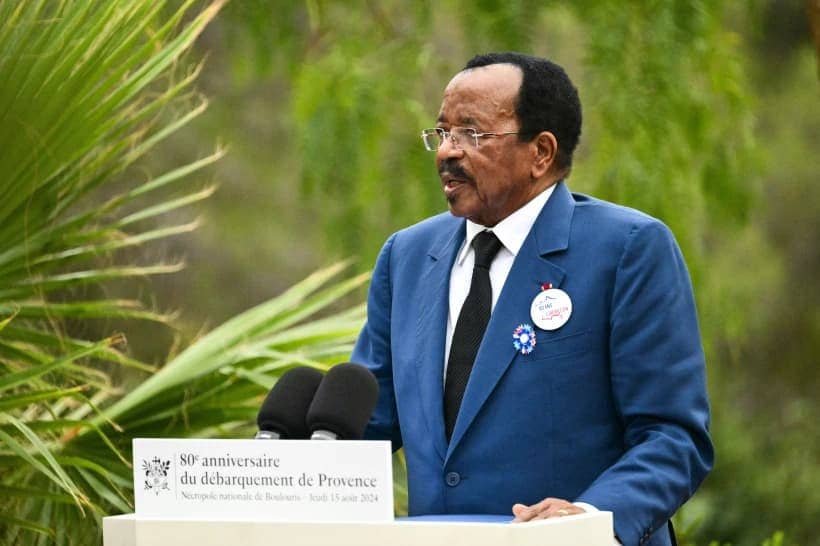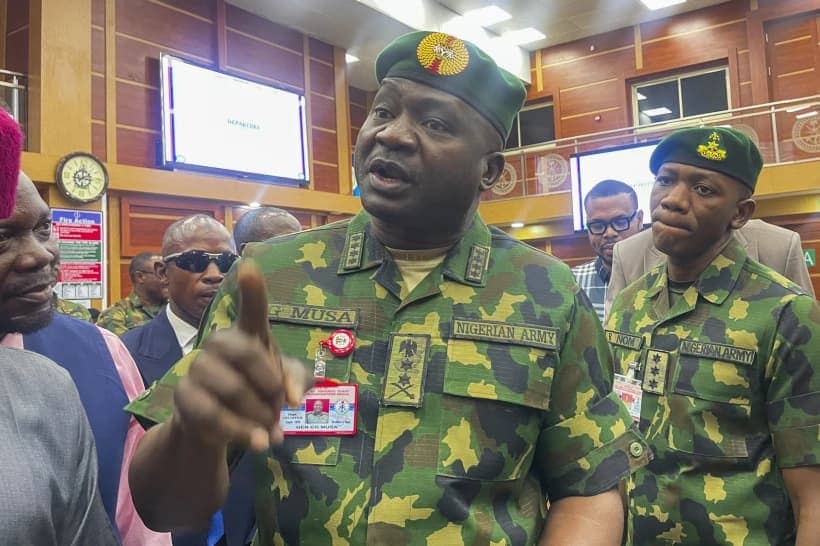YAOUNDÉ, Cameroon – In Guinea, a leading organization of priests has called on President Alpha Conde to respect the constitution, after he has tried to force changes that would allow him to seek another term in office.
In December, the 81-year-old president of the West African country announced he would hold a referendum to change the constitution to allow him to seek a third term after his second term ends at the end of 2020. The proposal would extend the presidential term to 6 years, renewable once, but would not be retroactive – meaning Conde could rule the country well into his 90s.
The president hasn’t confirmed he is seeking re-election himself, although he hasn’t ruled it out.
So far, the date of the proposed referendum has not been announced, but press reports say it is likely to run alongside Feb. 16 parliamentary elections on Feb. 16.
At least 20 people have died during demonstrations protesting Conde’s plan, and the opposition have said they will boycott the February poll if the president doesn’t reverse course.
Meeting in their 34th Ordinary Assembly in N’zérékoré from Jan 22-26, members of the Union of Guinean Clergy took a strong stance on the country’s socio-political situation.
In a statement, the priests called on Conde to restore peace to the country by respecting “the constitution in force.”
They decried the worsening political situation and complained about the excessive force used by the security services on protesters.
”The situation is serious. The unjustified exactions and abuses of all kinds, the loss of human and material lives have caused fear and sadness among the population,” read the final communique.
“We note that: Our democracy is flouted in favor of regionalism, nepotism, ethnocentrism, favoritism, injustice and clanism. The legal principles which govern our nation (the constitution, the electoral code, the civil code, the penal code …) are trampled on in favor of subjective agreements which do not take into account the interest of the nation,” it continued.
“Violence and unpunished crimes are on the increase. Sincere and patriotic dialogue is almost absent. The education system has entered a long crisis with repeated strikes, which seriously affect and jeopardize the future of the younger generation. The social fabric is shattered, the result of an exclusive and selfish, regionalist and ethnocentric policy. Public and private goods are destroyed, which affects the environment, economic growth and development of our country. The instrumentalization of youth for political ends has become commonplace. The permission to demonstrate granted to some and prohibited to others, which indicates an injustice in the management of civil liberties,” the priests’ group said.
The clergy also had advice for the various actors involved in the running of the state and the wellbeing of Guineans. To the country’s legislative and judiciary arms, they said as “guardians of the law,” they require courage because the future of the country depends on how well those laws are drafted and implemented.
“So please don’t let any instructions manipulate you for individualistic purposes,’’ they pleaded.
To the country’s political leaders, the priests reiterated the appeal made by Guinean Cardinal Robert Sarah, who runs the Vatican’s liturgy, to Guinean political leaders on Dec. 8, 2019, when he said: “The blood has flowed for too long in Guinea. Too much blood has flowed and profaned our homeland. That’s enough.”
The priests called on the entire country to pay due respect to victims of the demonstrations, and expressed the wish that justice be done on their behalf.
“We also condemn all discriminatory language that incites hatred and violence, as well as the destruction of public and private property. In this particularly tense pre-electoral period, we urge you government to ensure the security of the population, respect the constitution in force, observe the democratic principle of alternation of power, through free and transparent elections and the freedom of the independent national commission, and favor the dialogue which is tense with civil society and almost impossible with the opposition,” they said.
And to Conde, who they called the “guarantor of national sovereignty,” the priests underscored the need to “break the silence” over his participation in the next presidential election in order to bring “harmony and reconciliation to the country,” and get Guinea “out of this crisis which endures and affects national unity.”
The former opposition leader came to power in 2010, becoming the country’s first democratically elected president, after being jailed by previous autocratic regimes. The current constitution limits presidential terms to five years and renewable once, but Conde’s attempts to change the constitution and potentially seek a third term in office has raised concerns that he is becoming increasingly autocratic, like his predecessors.
Crux is dedicated to smart, wired and independent reporting on the Vatican and worldwide Catholic Church. That kind of reporting doesn’t come cheap, and we need your support. You can help Crux by giving a small amount monthly, or with a onetime gift. Please remember, Crux is a for-profit organization, so contributions are not tax-deductible.














